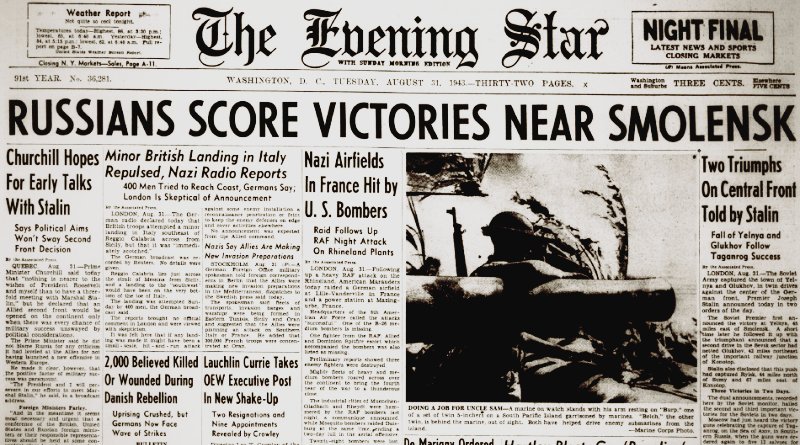World War II Chronicle: August 31, 1943
Click here for TODAY’S NEWSPAPER
It’s hard to make out, but the upcoming War Bond drive at the Washington Monument will feature this M-12 self-propelled gun, pictured on page three. It is a 155-mm. gun mounted on an M3 or M4 tank chassis. The M-12 made its combat debut on Sicily and, while not many of these vehicles were produced, crews found them quite useful for direct fire later in the war. The technical manual for Standard Military Motor Vehicles is officially released tomorrow so here’s the specifications:
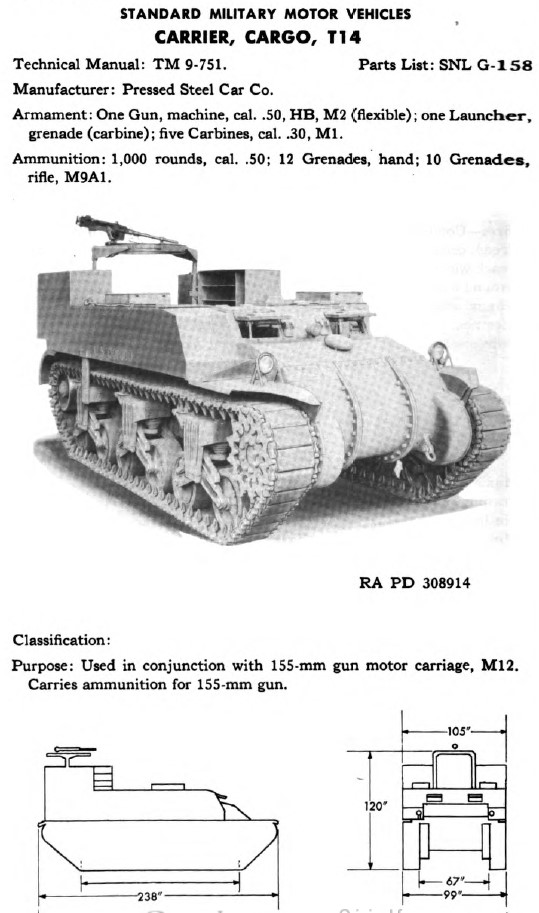
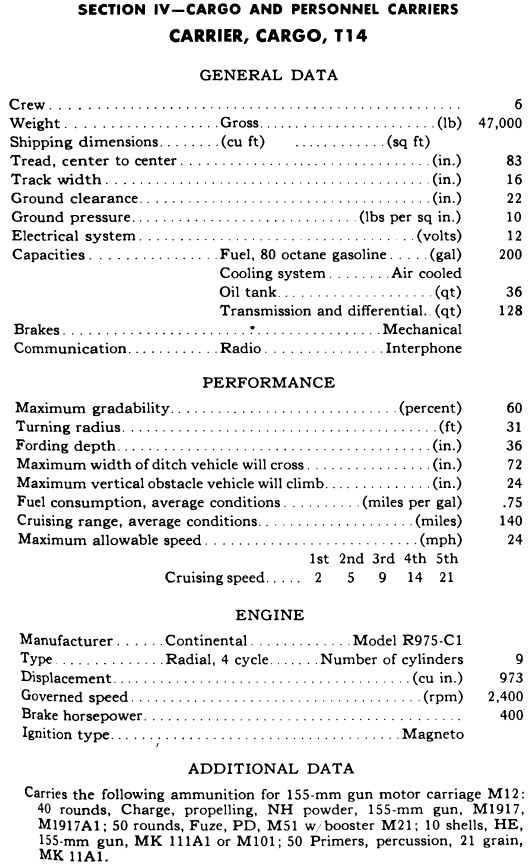
Since there was limited space on the tank for ammunition and crew another similar tank accompanied the gun-toting one which had space for the gun crew, a .50-cal. gun, and loads of ammo and powder charges…
“Chips,” an Army sentry dog and veteran of the North Africa and Sicily campaigns, has now been awarded the Purple Heart, Silver Star, and Distinguished Service Cross (page four). “Private” Chips landed on Sicily with his 3rd Military Police Battalion handler Pvt. John R. Rowell. That day an enemy pillbox opened up on the Americans, and Chips charged. His handler heard quite a ruckus and the Italian crew came out with their hands up, with Chips at the throat of one of them. Chips was burned by an Italian who tried shooting him, but the dog refused medical attention. That night, Chips alerted the MPs to a ten-man team of Italian soldiers trying to infiltrate the American position. The entire enemy force was captured.
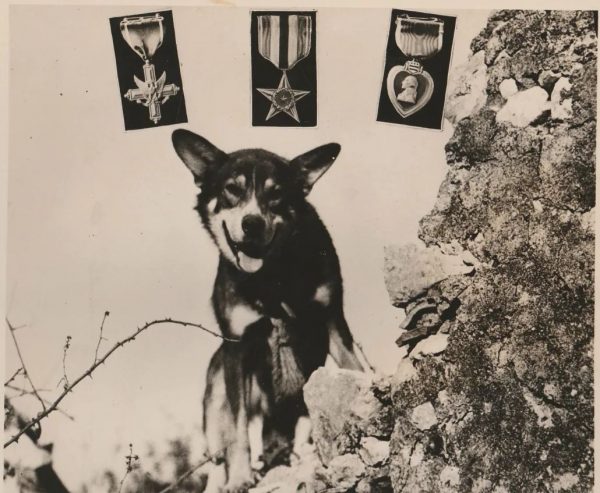
Chips, a German Sheperd-Collie-Malamute mix, will survive the war and he returns to his family in upstate New York in 1945. Although his medals were approved by 3rd Infantry Division’s Commanding General, Lucian Truscott, the War Department decided that only humans are eligible for medals…
Page four also has a cool cutaway drawing of the B-24 Liberator… George Fielding Eliot column on page six… Sports on page nine, and a Grantland Rice column…
Yesterday we began a look at where the NFL’s 1940 All-Decade Team is now, starting with the quarterbacks and halfbacks. Today we continue with the fullbacks and ends (tackles here, guards and centers here):
Wisconsin back Pat Harder joined the U.S. Marine Corps after the 1942 season. We will come back to him… The University of Nevada’s Marion Motley will join the the Navy next year. Motley will play for Paul Brown’s Great Lakes Navy Bluejackets before becoming one of two black players to break professional football’s color barrier when he rejoins Brown in Cleveland after the war… Bill Osmanski is the third member of the Chicago Bears backfield on the All-Decade team, and is a big reason why the Bears have won two championships in the last three seasons. He will too will leave football for the Navy, serving as a field dentist with the Marines…
A heart murmur kept Jim Benton from military service, and since his Cleveland Rams have just folded, he will play for the Bears this year… Jack Ferrante is one of the few pro football players to make it to the NFL with no college experience. He logged a few games with his hometown Eagles in 1941 but was sent to their farm club in Wilmington, Del., which folded this year. Ferrante won’t make hit it big until next season… LSU’s Ken Kavanaugh signed contracts with both the St. Louis Cardinals and the Chicago Bears after being named Consensus All-American in 1939. He went with football, and his playing days are on hold after last season. He becomes a bomber pilot, and will fly 30 missions as part of the 851st Bombardment Squadron, 490th Bombardment Group, Eighth Air Force…
Ohio State’s Dante Lavelli was injured for most of the 1942 season and is joining the 28th Infantry Division… Indiana University’s Pete Pihos was a first-team All-American last year and after this season will join the 35th Infantry Division, and will earn a battlefield commission… Mac Speedie has graduated from the University of Utah and is serving at Fort Warren, where he plays football. The Detroit Lions owner offers Speedie a contract, but he opts not to sign anything until after the war. Next season he will face Paul Brown’s Great Lakes Squad and impresses the coach enough to get a tryout after the war… Someone else right now is the “Meanest Man in Pro Football,” because Ed Sprinkle is not there yet. Hardin-Simmons’ football program folded this year so Sprinkle got a transfer to the Naval Academy…
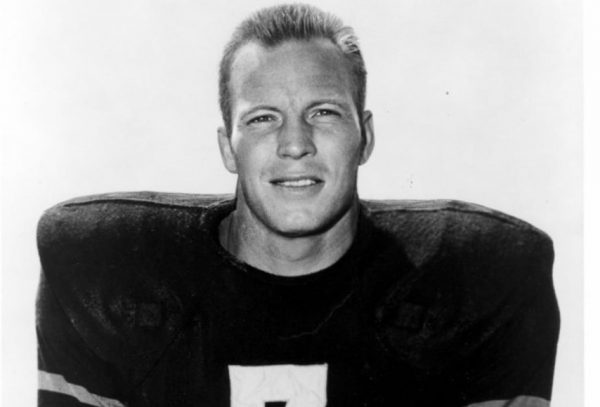
Pat Harder was part of a tough Wisconsin Badger squad last year. When they upset the national champion Ohio State Buckeyes, Harder scored all of Wisconsin’s 17 points. Three of the greatest Badger football players of all-time were on that team: Harder, Elroy “Crazy Legs” Hirsch1Hirsch is part of the NFL’s 1950s All-Decade Team, and Dave Schreiner. Wisconsin finished 8-1-1 last season, losing to Iowa and tying Notre Dame. Unfortunately for coach Harry Stuhldreher all three are gone this season, and all are Marines. Hirsch joined the V-12 Program and is now at Michigan, where he excels at football, track, and baseball. He and Minnesota’s Bill Daley formed the Wolverines’ “Lend-Lease” backfield. Schreiner is commissioned a second lieutenant and serves in the 4th Marines. More on him later…
Fun fact: Wisconsin’s head coach, Harry Stuhldreher, played high school ball at Massillon, Ohio before going on to become one of Notre Dame’s famed Four Horsemen. So did Paul Brown, who is Ohio State’s skipper. The only three games Marion Motley (mentioned above) lost in high school was to the rival Massillon Washington High School, who were then coached by Brown. Former Detroit Lions coach Bill Edwards went to school at Massillon before becoming Brown’s roommate at Ohio State. Edwards joined the Navy and now coaches the St. Mary’s Pre-Flight Air Devils football team…
2nd Lt. Alfred M. Shearer Jr. is back from the Southwest Pacific Theater, having almost become a human bomb. His unique story is on page 22. Shearer Jr. will lose his life when his B-17 crashes in Switzerland next year. His father is a colonel in Services of Supply and retires a brigadier general.
Roving Reporter by Ernie Pyle
SOMEWHERE IN SICILY — Outside of the occasional peaks of bitter fighting and heavy casualties that highlight military operation, I believe the outstanding trait in any campaign is the terrible weariness that gradually comes over everybody.
Soldiers become exhausted in mind and in soul as well as physically. They acquire a weariness that is mixed up with boredom and lack of all gaiety. To lump them all together, you just get damn sick of it all.
The infantry reaches a stage of exhaustion that is incomprehensible to you folks back home. The men in the First Division, for instance, were in the line 28 days — walking and fighting all the time, day and night.
After a few days of such activity, soldiers pass the point of known human weariness. From then on they go into a sort of second wind daze. They keep going largely because the other fellow does and because you can’t really do anything else.
Have you ever in your life worked so hard and so long that you didn’t remember how many days it was since you ate last or didn’t recognize your friends when you saw them? I never have either but in the First Division, during that long, hard fight around Troina, a company runner one day came slogging up to a certain captain and said, excitedly, “I’ve got to find Captain Blank right away. Important message.”
The Captain said, “But I am Captain Blank. Don’t you recognize me?”
And the runner said, “I’ve got to find Capt. Blank right away.” And he went dashing off. They had to run to catch him.
Men in battle reach that stage and still go on and on. As for the rest of the Army — supply troops, truck drivers, hospital men, engineers — they too become exhausted but not so inhumanly. With them and with us correspondents it’s the ceaselessness, the endlessness of everything that finally worms its way through you and gradually starts to devour you.
It’s the perpetual dust choking you, the hard ground wracking your muscles, the snatched food sitting ill in your stomach, the heat and the flies and dirty feet and the constant roar of engines and the perpetual moving and the never settling down and the go, go, go, night and day, and on through the night again. Eventually it all works itself into an emotional tapestry of one dull, dead patter — yesterday is tomorrow and Troina is Randazzo and when will we ever stop and God, I’m so tired.
I’ve noticed this feeling that has begun to overtake the war correspondents themselves. It is true we don’t fight on and on like the infantry, that we are usually under fire only briefly and that, indeed, we live better than the average soldier. Yet our lives are strangely consuming in that we do live primitively and at the same time must delve into ourselves and do creative writing.
That statement may lay me open to wise cracks, but however it may seem to you, writing is an exhausting and tearing thing. Most of the correspondents actually work like slaves. Especially is this true of the press association men. A great part of the time they go from dawn till midnight or 2 a.m.
I’m sure they turn in as much toll in a week as any newspaperman at home does in two weeks. We travel continuously, move camp every few days, eat out, sleep out, write wherever we can and just never catch up on sleep, rest, cleanliness, or anything else normal.
The result is that all of us who have been with the thing for more than a year have finally grown befogged. We are grimy, mentally as well as physically. We’ve drained our emotions until they cringe from being called out from hiding. We look at bravery and death and battlefield waste and new countries almost as blind men, seeing only faintly and not really wanting to see at all.
Just in the past month the old-timers among the correspondents have been talking for the first time about wanting to go home for a while. They want a change, something to freshen their outlook. They feel they have lost their perspective by being too close for too long.
I am not writing this to make heroes of the correspondents because only a few look upon themselves in any dramatic light whatever. I am writing it merely to let you know that correspondents can get damn sick of war — and deadly tired.
Evening star. (Washington, D.C.), 31 August 1943. Chronicling America: Historic American Newspapers. Lib. of Congress.
https://chroniclingamerica.loc.gov/lccn/sn83045462/1943-08-31/ed-1/
